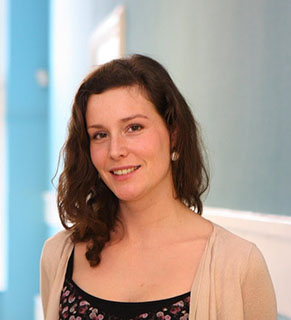Foster children want to understand their past
Children who grow up in a foster family have often had very unpleasant experiences, including physical violence, neglect, addicted parents or sexual abuse. PhD student Anne Steenbakkers asked the children and young adults themselves what influence this has had on their lives and social needs. It turns out that they want to understand exactly what happened in their past. Steenbakkers will be awarded a PhD on Thursday 17 May by the Faculty of Behavioural and Social Sciences of the University of Groningen.
Steenbakkers’s research has revealed that these youth experience a lot of negative consequences from their past. The consequences mentioned by former foster children, such as depressed or angry feelings and problems with relationships, match what is known about youth trauma. In addition to negative consequences, these youth also say that their past can lead to positive changes, for example that they have become stronger or more caring.
Relationship of trust
Anne Steenbakkers: ‘Young people find it difficult to cope with negative consequences, they become withdrawn, for example, or are short-tempered. They really want to understand what happened; they want the full story. Discussions with a foster parent, foster care supervisor or therapist are not easy, but it helps when the discussion partner shows interest and a relationship of trust has developed. Before they are willing to share with others, these youth first want to develop good conversation skills and no longer be heavily emotionally affected by their story. Having to talk about the past has the opposite effect.
Alongside talking, there are other ways to satisfy the needs of foster children. However, there are significant differences – where one child might need a lot of attention to process his or her past, another may prefer to concentrate on the future. Foster parents and foster care supervisors do not always have the same view of this as the foster children. In her PhD, Steenbakkers emphasizes the importance of participation by these youth in the foster care. The youth also think this is important: ‘They say that what they mainly needed was a voice. That they be asked what they wanted and that the situation could then be examined together’, according to Steenbakkers.

About Anne
Anne Steenbakkers conducted her PhD research at the department of Orthopedagogy, where she currently works as a postdoc researcher. Her thesis is entitled: ‘What I really needed was a voice’: The psychosocial needs of youth in family foster care and the impact of traumatic experiences.
More news
-
03 February 2026
‘Such willpower’
-
20 January 2026
Alcohol, texting, and e-bikes
-
13 January 2026
Lonneke Lenferink joins The Young Academy
